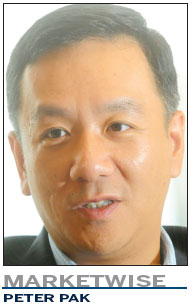Mainland economy healthy but inflation a worry
Updated: 2010-09-17 07:09
By Peter Pak(HK Edition)
|
|||||||
The National Bureau of Statistics (NBS) has released a set of macroeconomic data for August that indicates that there has been a mild rebound in certain areas of the mainland's economy. However, uncertainties over policies will remain due to inflationary pressure.
Retail sales showed a slight pick-up from an increase of 17.9 percent year-on-year (all figures are on a year-on-year basis unless specified otherwise) in July to 18.4 percent in August, beating market expectations. Deducting the price factor, real-term growth reached about 14.4 percent, up slightly from 14.1 percent in July. The rebound in retail sales growth was mainly due to higher-than-expected sales of automobiles, furniture and other durables. Looking forward, retail sales might see a further pick-up in September and October as the Mid-Autumn Festival and National Day holidays are peak periods of consumption.

According to the NBS, urban fixed-asset investment (FAI) rose 24.8 percent in the first eight months this year, down slightly from 24.9 percent in the first seven months and 25.5 percent in the first half. Due to the tightening on industries with overcapacity, urban FAI growth for steel saw further mitigation from 10.4 percent in the first half and 4.7 percent in the first seven months to only 2.8 percent in the first eight months. Because of the rising comparison base and tightening policies, property investment growth further slowed from 38.1 percent in the first half and 37.2 percent in the first seven months to 36.7 percent in the first eight months, showing a very gradual deceleration.
After the recent round of official tightening on local-government financing vehicles, infrastructure investment growth has seemingly stabilized after several months of decline. Looking forward, property investment is likely to show a further slowdown, while investment growth in manufacturing and infrastructure might stabilize or fall slightly below the current level.
However, the Consumer Price Index (CPI) hit a new high of 3.5 percent in August, putting a dampener on the Central Government's expectation that CPI growth would gradually slow down after July. The base effect contributed 1.7 percentage points to the CPI's year-on-year growth, while the jump in food prices was at the fore. The CPI registered a month-on-month rise of 0.6 percent, mainly driven by the jump in food prices, especially those of vegetables, eggs and pork. In August, food prices rose 7.5 percent with that of fresh vegetables and grain up 19.2 percent and 12 percent, respectively.
Uncertainties related to grain and pork prices might add some fuel to inflation further down the road. The CPI is likely to see a further pick-up in September and October due to the holiday uptrend during the Mid-Autumn Festival and National Day holidays. The CPI growth is expected to climb near 4 percent in the next two months and then gradually ease due to the lower base-effect contribution.
In general, the NBS figures showed that most economic indicators saw a slight rebound in August after sliding for several months. With the arrival of the peak season for consumption ahead, retail sales should accelerate further in September and October. Meanwhile, both the property prices and the CPI will face upward pressure during the next several months. The odds for further austerity measures remains high while some stimulus policies or measures for the new strategic industries are expected to be launched in the near future.
Peter Pak is Executive Director of BOCI Research Ltd. The opinions expressed here are entirely his own and do not represent BOCI or any other affiliated companies within the group. Nothing in this article constitutes an investment recommendation.
(HK Edition 09/17/2010 page2)